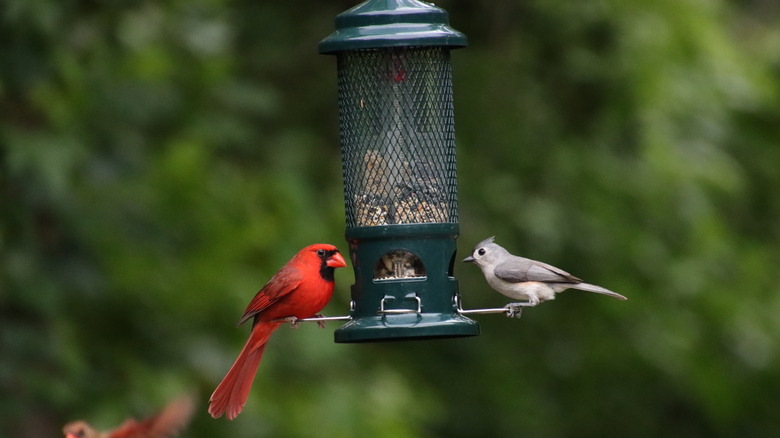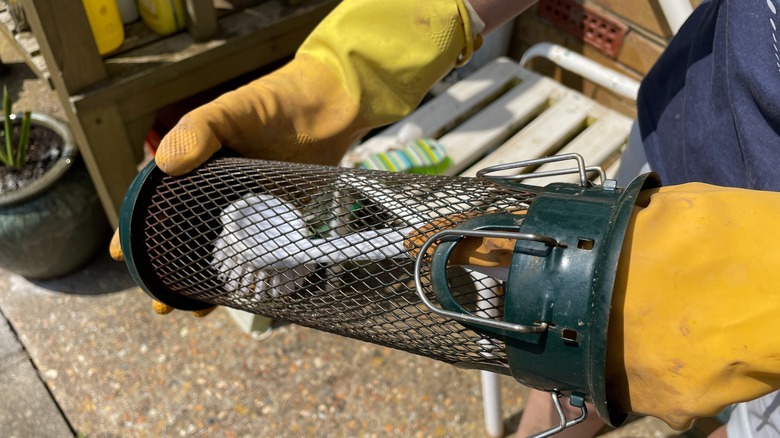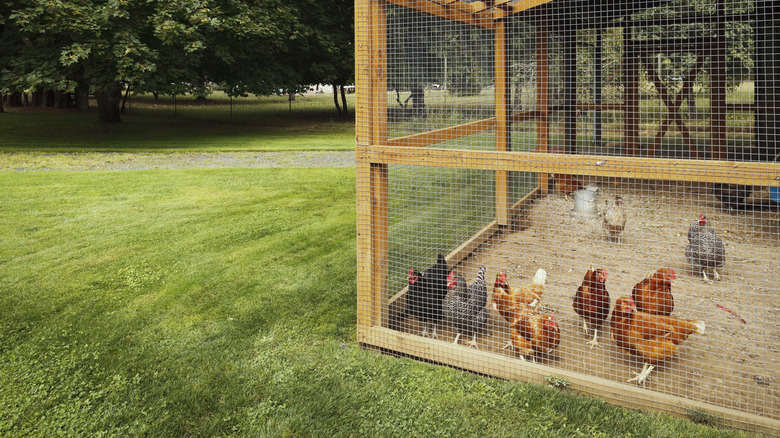Should You Take Your Bird Feeder Down During Avian Influenza This Summer?
Since its emergence in the early 2020s, avian influenza (H5N1) has decimated wild birds and poultry stocks across the world. According to the Centers for Disease Control and Prevention (CDC), the disease has infected over 9,000 wild birds and almost 97 million poultry birds in the U.S. alone since 2022. H5N1 has been notably devastating among poultry, with a mortality rate that shoots up to 90% and 100% in chickens. Although human cases are rare, some have led to critical illness and even death. Given these alarming developments, you may wonder how safe your household is from the disease, and whether it's worth removing bird feeders to avoid attracting potentially infected wild birds to your home. The answer depends on whether you have poultry on your property, what your personal risk tolerance is, and whether there are local agencies requesting the removal of bird feeders.
If your property is home to poultry, it's best to get rid of feeders on the off chance that a visiting wild bird may infect your stock. The USDA Animal and Plant Health Inspection Service (APHIS) recommends against giving food to these animals anywhere on your property, with a feeder or otherwise, as a way of protecting your stock. Even if you're not raising birds at home, a local animal protection agency may ask you to take down feeders as a precaution. Otherwise, as long as you understand the risks of H5N1 and how to feed wild birds safely, you may choose to leave the feeder up.
Safety precautions when feeding wild birds in your yard
While poultry birds have a very low chance of survival after contracting avian flu, it seems that the risk for wild birds — and songbirds in particular — is low. That said, even asymptomatic wild species can easily spread the infection, so the question boils down to this: Is there a risk that you or your family can get infected by a visitor? According to the CDC, human infections are rare but not impossible. To reduce the chance of getting infected, avoid contact with bodily fluids through which birds shed avian flu — saliva, mucus, and feces.
By keeping the bird feeder clean, you can curb the spread of H5N1 (and other avian diseases) and protect yourself from infection. At a minimum, clean the feeder once every two weeks. Use a solution of one part household bleach and nine parts water to rinse the feeder and dry it well before putting it back outside. If you find birds frequenting the feeder in large numbers, empty and clean the bird feeders well every couple of days instead. Pathogen-carrying particles of bird saliva and droppings build up on the feeder over time, so it's wise to wear a protective mask when you're handling it. The virus can enter the human body through the eyes, mouth, or nose — take care not to touch these parts of your body while you're giving the feeder a rinse.
How to protect domestic birds from the avian flu
If you have domestic birds at home, make sure they don't have any contact whatsoever with their wild counterparts. Getting rid of feeders and baths is the first step. But, alas, doing so may not be enough to keep wild birds away from your home altogether. USDA APHIS suggests stepping your home's biosecurity up a notch and removing sources of food that may attract these species to your yard. This means picking up and discarding fallen fruit and berries, mowing the grass down less than 3 inches in height, and moving fruit-bearing trees away from your poultry area.
Berry-producing trees are a draw for wild birds on your property, but they're likely not the only ones — especially if you're raising chickens, ducks, or turkeys. You probably have storage areas where you keep feed for your animals. Unless these areas are properly closed, wild species may find their way into them and infect the feed with their droppings or saliva. When you give this feed to your poultry, the pathogens may lead to infections and spark a lethal outbreak. Likewise, do your best to keep wild birds out of waste disposal facilities — these may also be attractive to scavenging species around your property.


